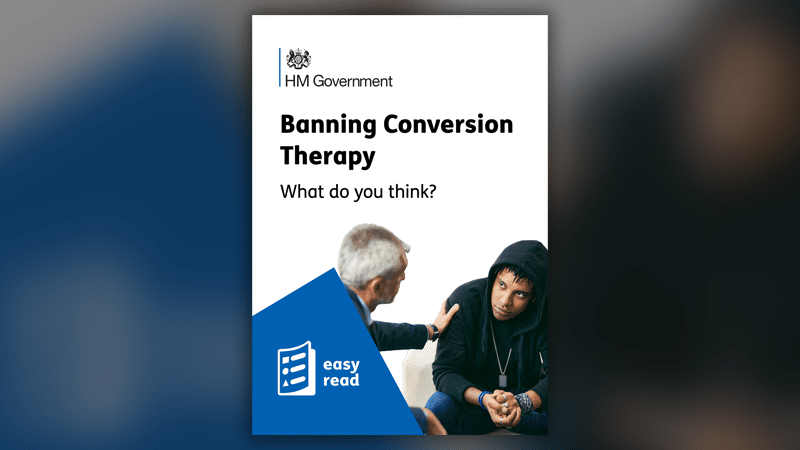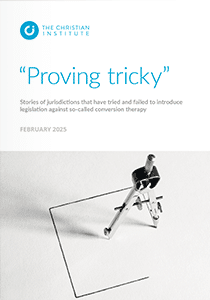A simplified version of the Government’s ‘conversion therapy’ ban consultation document has been changed after concerns were raised that its wording suggested teachers and religious leaders would be at greater risk of prosecution.
Launched less than two weeks before the consultation process was due to end, the easy to read version was taken offline before being republished with alterations, alongside the announcement that the consultation will now be extended to February 2022.
The original publication, designed to help people with learning difficulties take part in the consultation, stated: “Talking therapy is used a lot by: counsellors, mental health professionals, religious leaders and teachers”. Religious leaders and teachers have now been removed.
Teachers
Campaigners have warned the Government not to include preaching, prayer and pastoral care within the scope of any ban.
By suggesting that church leaders and youth workers practise “talking therapy”, the first edition of the document put them at risk of being accused of ‘conversion therapy’ for sharing the Bible’s teaching on sexual ethics with a young person.
The organisation Sex Matters raised similar concerns over the labelling of teachers as ‘therapists’, arguing that a teacher’s conversation with a pupil, “explaining how gender identity is different from sex”, might be seen as ‘conversion therapy’.
‘Blurred lines’
A spokesman for Let Us Pray – the campaign backed by The Christian Institute – welcomed the change, which he said “blurred the lines between caring conversations and medical therapy”.
He added: “It is helpful too that the Government has replaced its wording on transgenderism, which risked bringing unhelpful categories of ‘gender’ into legislation.”
The consultation will now run until 4 February 2022, after widespread criticism of the initial decision to halve the standard period for such a complicated and controversial issue from twelve weeks to just six.
‘Conversion to Christ’
More than 2,500 Christian ministers and pastoral workers have called on the Minister for Women and Equalities to ensure that the ordinary work of churches is not caught by a ban on so-called conversion therapy.
In an open letter, the ministers said that ‘conversion therapy’ is “such a bizarrely broad category”, which implies “an equivalence between calling people to conversion to Christ, which is our duty as Christian ministers, and evil and disreputable past practices which are already illegal and which Christians are the first to condemn”.
They warned that the ban set out in the consultation could make it illegal “for us as Christian ministers to persuade, to teach and to help people of every age to become, and to live as, orthodox Christians”.
If you haven’t yet responded to the consultation, please do so using this simple guide. This video guide also has more background and advice to help you.


